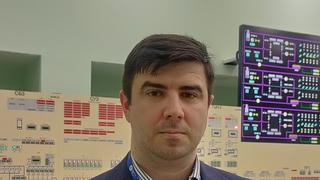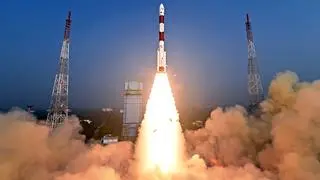Indian Institute of Technology Madras (IIT Madras) and NASA Jet Propulsion Laboratory researchers have studied the interactions between microbes in the International Space Station (ISS). This will help devise strategies for the disinfection of space stations to minimise any potential impact of microbes on the health of astronauts.
The present study was motivated by the earlier observations of the dominance of Klebsiella pneumoniae on the surfaces of the ISS. This pathogen has been known to cause pneumonia and other nosocomial infections. The researchers were broadly interested in understanding how this bacteria affects the growth of other microbes in the vicinity and the possible implications it could have, says a release.
The researchers analysed the microbial sample data taken across three space flights at seven locations in the ISS. The study found that Klebsiella pneumoniae, a major microbe that resides on the ISS, is beneficial to various other microbes also present on the ISS, especially the bacteria from the Pantoea genus.
Karthik Raman, Associate Professor at the Bhupat & Jyoti Mehta School of Biosciences and a core member of the Robert Bosch Centre for Data Science and Artificial Intelligence (RBCDSAI), IIT Madras, collaborated with Kasthuri Venkateswaran, Senior Research Scientist at JPL, the release said.
Need for research
Highlighting the need for such research, Raman said that the microbiome of the built environment has a huge impact on human health. Controlled environments such as the ISS, harbour a variety of organisms, and unravelling their interactions is key to a better appreciation of the factors that shape the microbiome even in extreme conditions.”
This bacterial family includes members like E. coli, Salmonella, etc, which are also present in the human gut. This bacterial family was found to be the most beneficial among the other microbes present on the ISS.
Kasthuri Venkateswaran, Senior Research Scientist, Jet Propulsion Laboratory (JPL), said that one of the ways the microbes are introduced in the sealed and closed space station, is through crew members. However, the environment at the space station is different from that on Earth. The interaction between the microbes is also affected by these adverse environmental conditions in space, necessitating such studies. More knowledge on the microbes in space can help devise appropriate safety measures for long-term space travel.








Comments
Comments have to be in English, and in full sentences. They cannot be abusive or personal. Please abide by our community guidelines for posting your comments.
We have migrated to a new commenting platform. If you are already a registered user of TheHindu Businessline and logged in, you may continue to engage with our articles. If you do not have an account please register and login to post comments. Users can access their older comments by logging into their accounts on Vuukle.